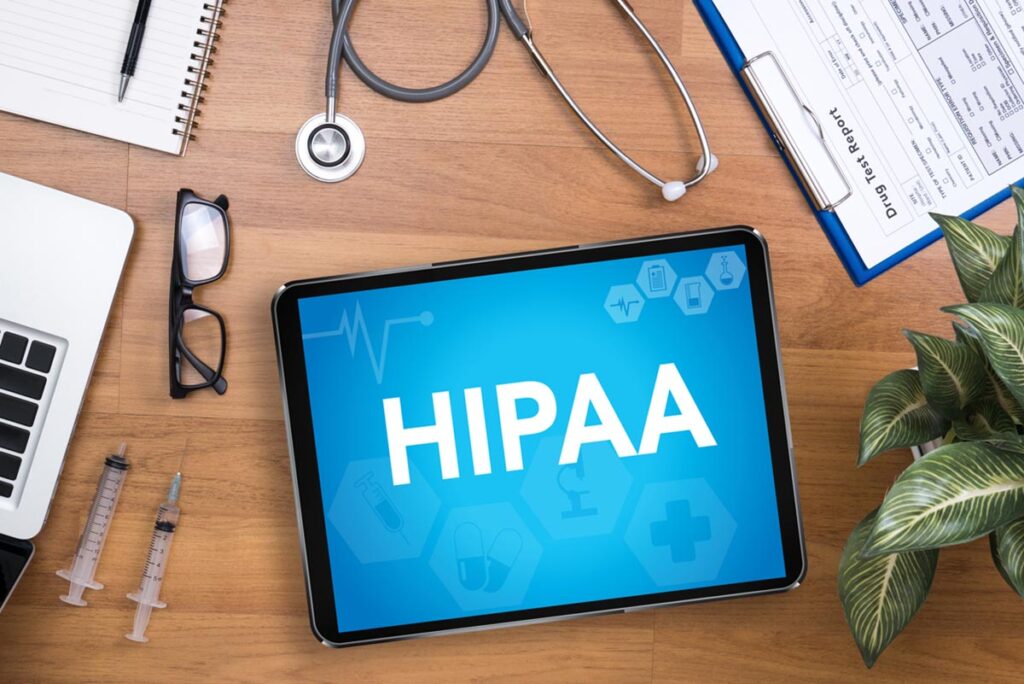When it comes to HIPAA and mental health records, there are certain privacy rights and protections in place to ensure the security of patients’ health information. HIPAA and mental health treatment are intrinsically linked because of the important controls that exist over how health information is used and disclosed by healthcare plans and medical providers. As your organization continues to manage both HIPAA and mental health records, contact us today online or by calling us at 561.576.6037 to learn about how Sunwave electronic medical records management can help you stay compliant and continue to provide excellent care to your patients.
What Is HIPAA?
The Health Insurance Portability and Accountability Act of 1996 (HIPAA) is a federal law that requires the creation of national standards to protect sensitive patient health information from being disclosed without the patient’s consent or knowledge. For individuals living with a mental health condition, this law is critical because HIPAA ensures that a patient’s private information, treatments, test results, and records remain confidential while being able to be accessed by all parties who require this information to provide the correct care.
HIPAA and Mental Health Treatment
There has been a multitude of misunderstandings over the years about the type of information mental health treatment providers are allowed to share with others about their patients. This has resulted in situations in which family members and friends of a patient with a mental health condition have been unable to communicate with healthcare providers. This is a situation that doesn’t help their loved ones or the medical providers working hard to care for them. HIPAA and mental health treatment are connected, and guidance exists to help everyone be on the same secure page.
When it comes to HIPAA and mental health records, the law has established a baseline for the sharing and privacy of health information. State laws that are more protective of a patient’s privacy will supersede HIPAA regulations. Because state laws vary, it is important that your organization is familiar with the laws and stays abreast of changes in the rules of regulations. Sunwave electronic medical records management and software tools can help your business stay compliant and keep mental health treatment records accessible to all interested parties but still secure and private as per federal and state law.
Which Mental Health Records Are Protected Under HIPAA Privacy Laws?
Currently, under HIPAA rules, the following information is considered protected for adults receiving mental health treatment:
- Information your doctors, nurses, and other healthcare providers have added to a medical record
- Communication doctor(s) have had about care or mental health treatment with nurses and other medical providers
- Billing information
- Other health information held by any person providing physical or mental health treatment
Before receiving services, patients should be provided with a notice of privacy practices. This is a written statement about how your organization will use and share a patient’s mental health records and information.
The Penalty for Violating HIPAA
It is critical to stay HIPAA compliant to protect patient privacy but also to protect your business from penalties. Most healthcare professionals fear HIPAA violations because penalties for violations, while based on the circumstances and intent of the provider, can range from $100 to $50,000 for a first-time offense. Having a software management partner to secure information and help you stay in line with HIPAA is essential for any healthcare provider and organization operating today.
Learn More at Sunwave Health
Healthcare organizations like yours must balance both HIPAA and mental health records management. Sunwave Health’s management tools can help your facility run smoother, better care for and communicate with your patients, and stay HIPAA compliant. Learn how more by calling us 561.576.6037 or reaching out to us online today.



